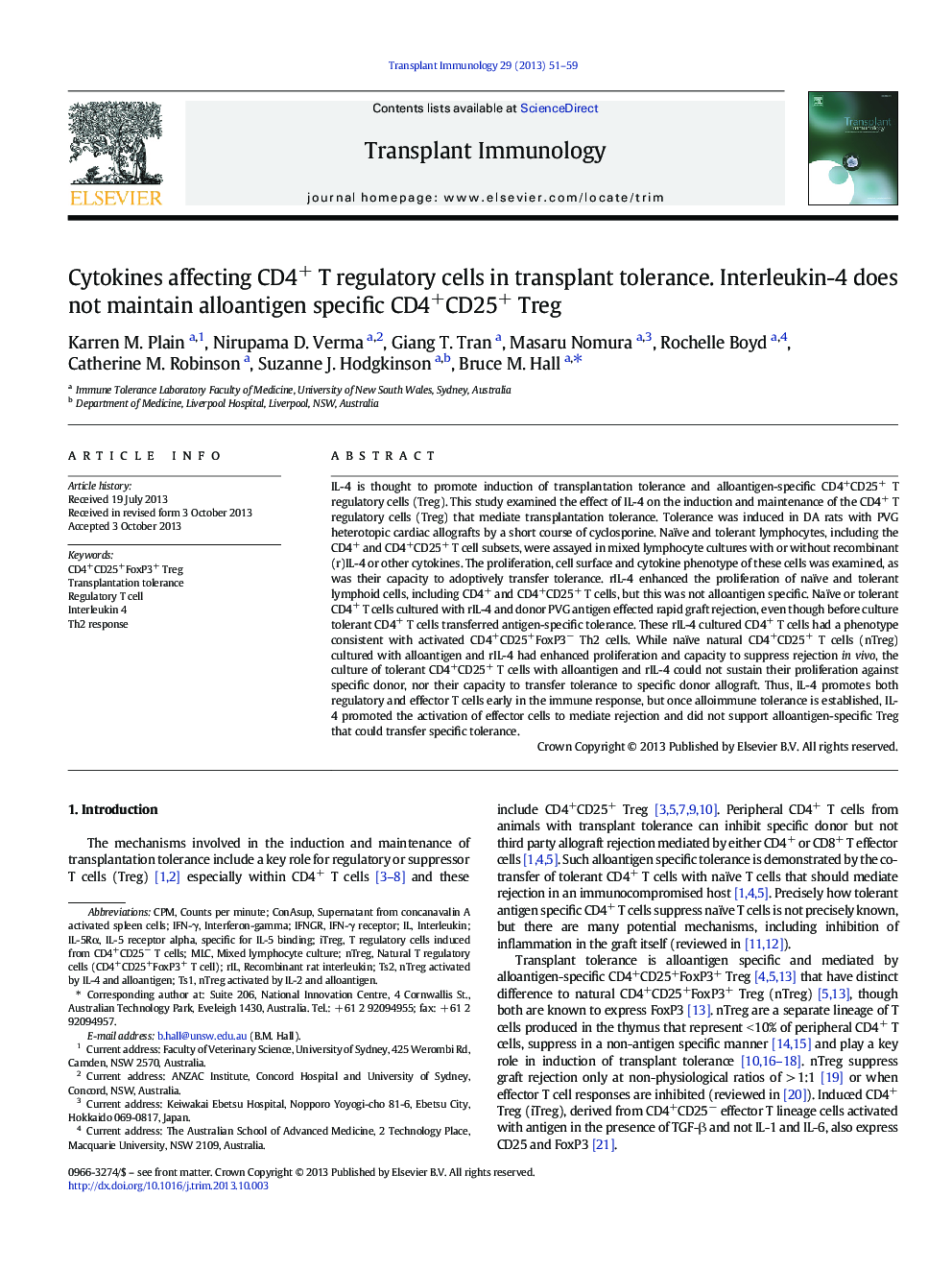| Article ID | Journal | Published Year | Pages | File Type |
|---|---|---|---|---|
| 6126027 | Transplant Immunology | 2013 | 9 Pages |
Abstract
IL-4 is thought to promote induction of transplantation tolerance and alloantigen-specific CD4+CD25+ T regulatory cells (Treg). This study examined the effect of IL-4 on the induction and maintenance of the CD4+ T regulatory cells (Treg) that mediate transplantation tolerance. Tolerance was induced in DA rats with PVG heterotopic cardiac allografts by a short course of cyclosporine. Naïve and tolerant lymphocytes, including the CD4+ and CD4+CD25+ T cell subsets, were assayed in mixed lymphocyte cultures with or without recombinant (r)IL-4 or other cytokines. The proliferation, cell surface and cytokine phenotype of these cells was examined, as was their capacity to adoptively transfer tolerance. rIL-4 enhanced the proliferation of naïve and tolerant lymphoid cells, including CD4+ and CD4+CD25+ T cells, but this was not alloantigen specific. Naïve or tolerant CD4+ T cells cultured with rIL-4 and donor PVG antigen effected rapid graft rejection, even though before culture tolerant CD4+ T cells transferred antigen-specific tolerance. These rIL-4 cultured CD4+ T cells had a phenotype consistent with activated CD4+CD25+FoxP3â Th2 cells. While naïve natural CD4+CD25+ T cells (nTreg) cultured with alloantigen and rIL-4 had enhanced proliferation and capacity to suppress rejection in vivo, the culture of tolerant CD4+CD25+ T cells with alloantigen and rIL-4 could not sustain their proliferation against specific donor, nor their capacity to transfer tolerance to specific donor allograft. Thus, IL-4 promotes both regulatory and effector T cells early in the immune response, but once alloimmune tolerance is established, IL-4 promoted the activation of effector cells to mediate rejection and did not support alloantigen-specific Treg that could transfer specific tolerance.
Keywords
Related Topics
Life Sciences
Immunology and Microbiology
Immunology
Authors
Karren M. Plain, Nirupama D. Verma, Giang T. Tran, Masaru Nomura, Rochelle Boyd, Catherine M. Robinson, Suzanne J. Hodgkinson, Bruce M. Hall,
